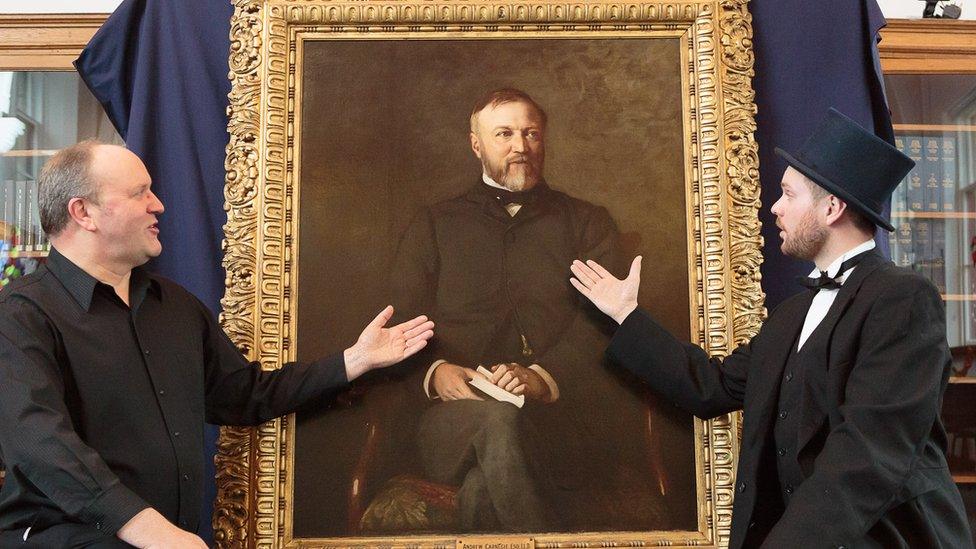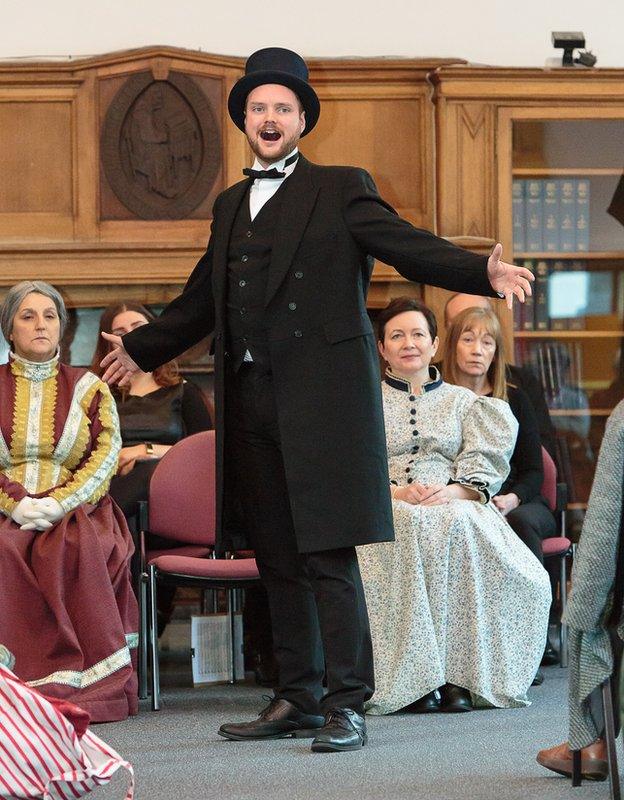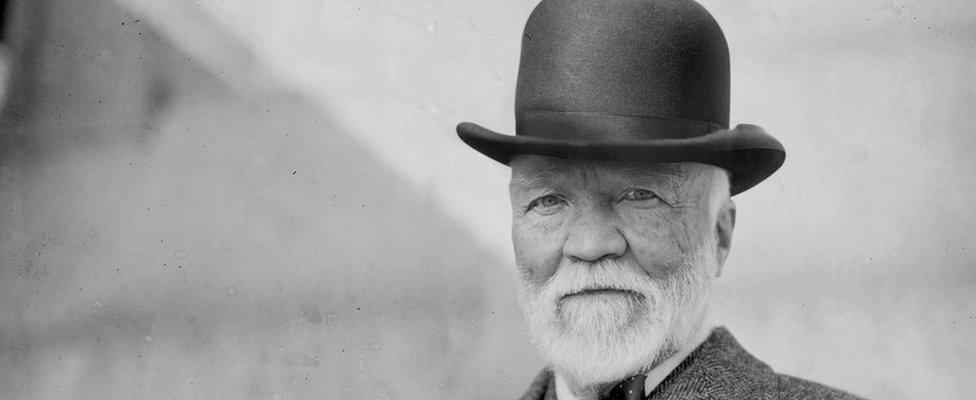Descendant to play Andrew Carnegie in Dunfermline
- Published

Fife-born Carnegie led the expansion of the American steel industry
The great-great-great-grandson of Andrew Carnegie is to play the Scottish philanthropist when a musical about his life is staged in Dunfermline.
Joe Whiteman, is descended from the Dunfermline-born business man on his mother's side.
The 28 year-old music teacher will reprise the role in Carnegie - The Star Spangled Scotchman, after playing the part at the Edinburgh Fringe in 2016.
The show will have a two-night run at Carnegie Theatre from 17 May next year.
Carnegie, who died in Massachusetts in 1919, is said to have given almost 90% of his fortune to charities, foundations, and universities - about £273m ($350m).
The musical tells the story of his life from the perspective of a steelworker killed in the controversial homestead steel plant dispute of 1892. He has returned from the afterlife to decide on Carnegie's eternal fate in the last two hours of his life.

Joe Whiteman previously played his relative at the Edinburgh Fringe Festival in 2016

The show was developed by Ian Hammond Brown, who won a development grant from Creative Scotland in 2013.
He said: "It's a great opportunity to work with a fantastic cast again, a number of whom appeared in the Fringe production, as well as support the local community.
"It's always been my dream to perform the show at the Carnegie Hall and it's particularly poignant in 2019 as it's the centenary year. Many thanks to Fife Cultural Trust for its support."
Fife Cultural Trust donated the hire of the theatre free of charge in tribute to the legacy of Carnegie.

Andrew Carnegie (1835-1919)

Born in Dunfermline, he immigrated to the United States with his parents in 1848
Early education at the Free School in Dunfermline, which was gifted to the town by Adam Rolland of Gask
His first job was as a bobbin boy in 1848, changing spools of thread in a Scottish owned mill - he worked 12 hour days, six days a week
A series of successful investments and the birth of Carnegie's steel empire saw him accumulate substantial wealth
In 1901, he sold the Carnegie Steel Company to JP Morgan for more than $300m (£233m)
The 1901 deal meant Carnegie surpassed John D Rockefeller as the richest American of the time
He devoted the rest of his life to philanthropy, with emphasis on libraries, world peace, education, and scientific research